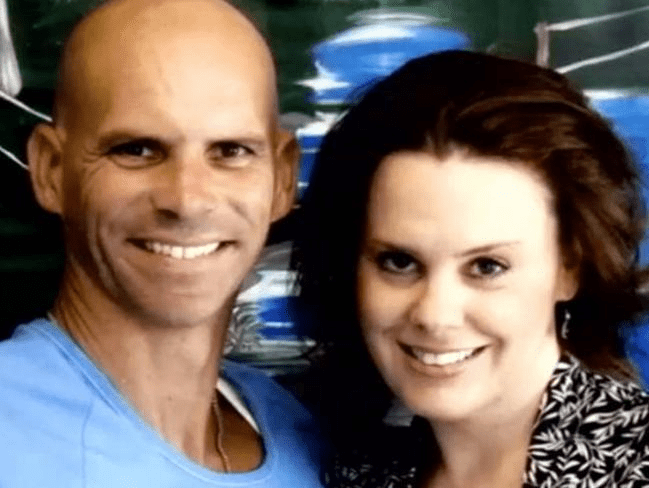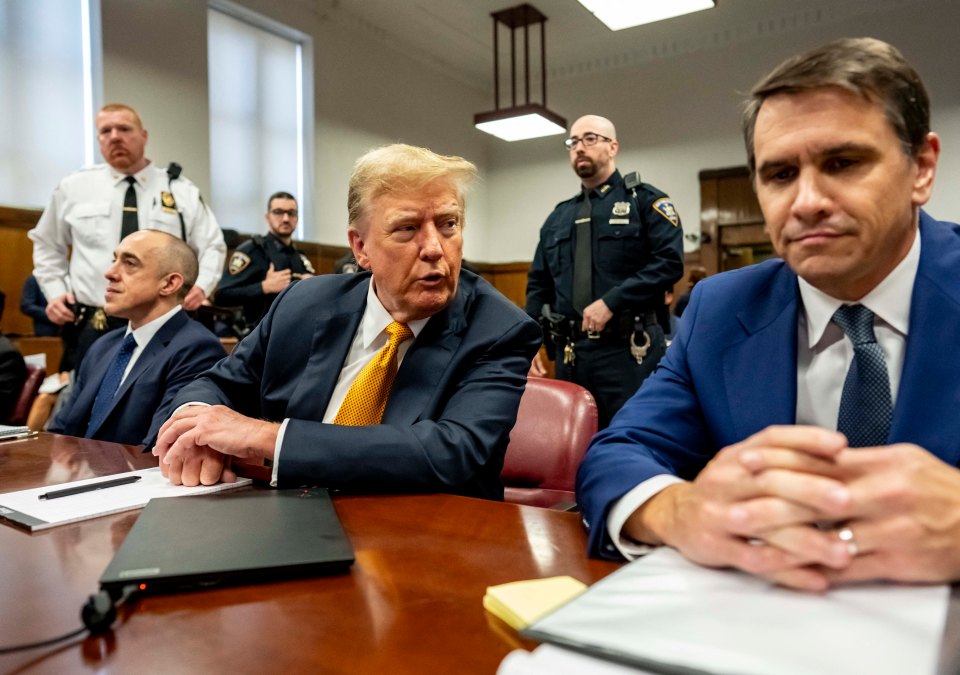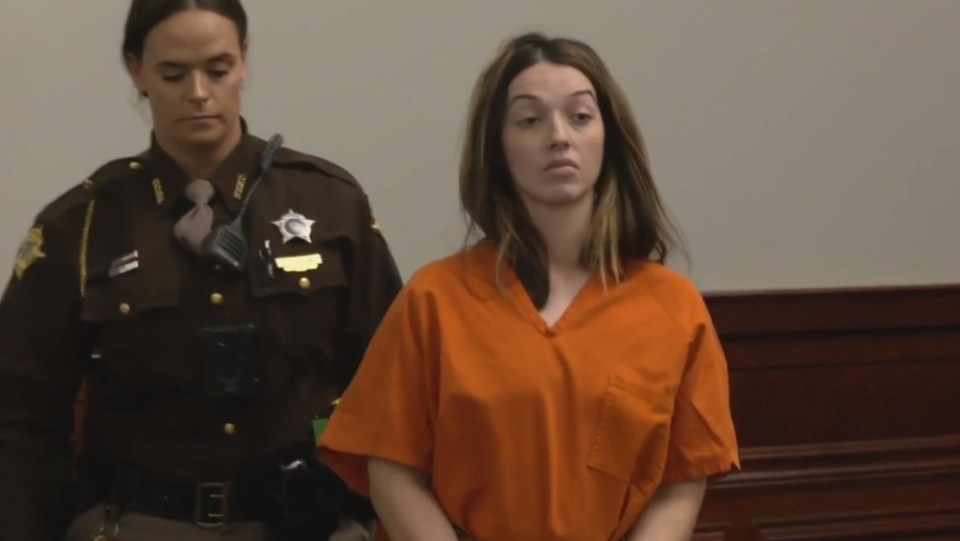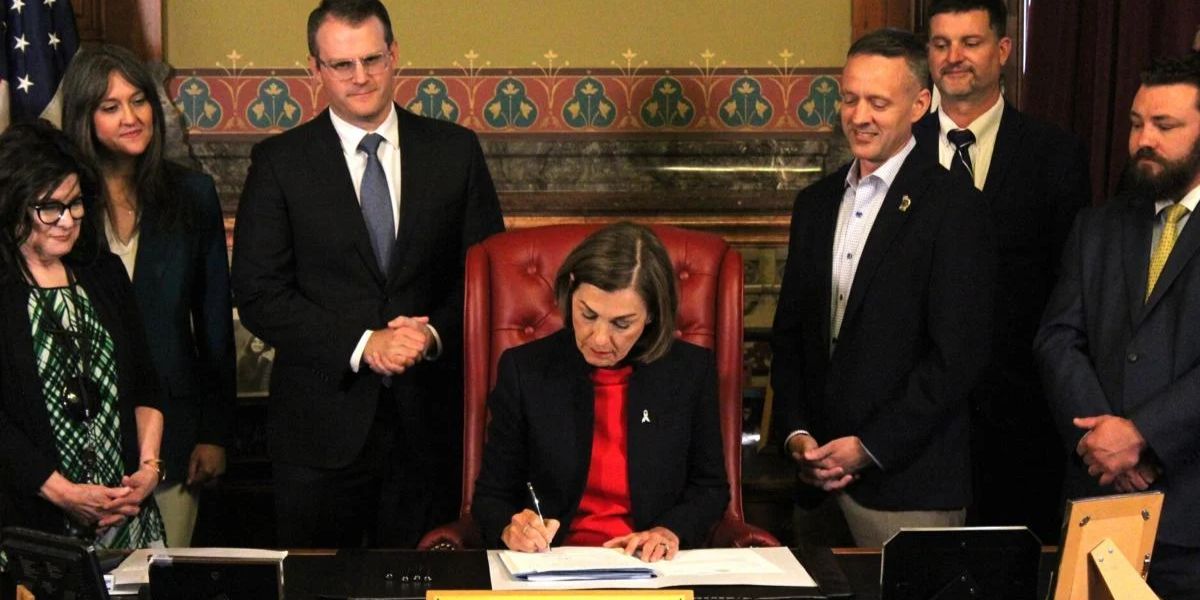BIG WIN FOR IOWANS! Governor Reynolds Fast-tracks an Income Tax Cut to 3.8% by 2025
Governor Kim Reynolds signed legislation to accelerate income tax reduction, decreasing Iowa’s individual income tax to a 3.8% single tax rate beginning in 2025.
Reynolds signed Senate File 2442 into law on Wednesday, moving up the 2022 cut of Iowa’s individual income tax rate to a single rate of 3.9% by 2026. The governor complimented Iowa Republican leadership for collaborating with her on tax proposals that “comprehensively transformed our tax code and dramatically increased our competitiveness within a few short years.”
“When I took office, Iowa’s personal income tax rate was the sixth highest in the nation at 8.98%,” Reynolds said in a statement. “I believe we had nine brackets, and the list could go on and on. It was evident that we needed to make a change, and that is exactly what we did.
According to the Tax Foundation, when this year’s tax cuts take effect, Iowa will have the sixth-lowest income tax rate among the 41 states having an income tax.
“At the same time, conservative budgeting practices have kept us living within our means and allowed us to continue making historic investments in key priorities of Iowans,” Reynolds said in a statement. “Even with these tax cuts, we ended Fiscal Year ’23 with a $1.83 billion surplus, nearly $900 million in cash reserves, and $3.7 billion in the Taxpayer Trust Fund. So it’s evident that we’re in a good position to go further and faster.
Lowering income taxes was a top priority for both the governor and Republican legislature leaders this year. Earlier in the session, more significant reductions were proposed: Reynolds submitted legislation to retroactively reduce the individual income tax rate to a flat 3.65% in 2024, with another fall to 3.5% for 2025.
Rep. Bobby Kaufmann, R-Wilton, and Sen. Dan Dawson, R-Council Bluffs, chairs of both chambers’ Ways and Means committees, introduced legislation to reduce the tax to 3.775% in 2026 and 3.65% in 2027, as well as establish a system for financing future cuts from the Taxpayer Relief Fund until the state income tax is completely eliminated. Some Democratic senators, including Senate Minority Leader Pam Jochum, said the switch to a flat income tax rate unfairly favored richer Iowans over lower- and middle-class Iowans. She also stated that the tax cuts may not be sustainable if the state has future economic downturns, thereby jeopardizing important financing priorities such as Iowa’s K-12 education system and other social programs.
“Sooner or later, it won’t work. “It’s not good budgeting, and it’s not sustainable,” Jochum stated in April. “I was trying to look at the long-term impact of all the different things that have been happening last few years in terms of educating our children, combined now with all the changes going on the tax system, that would reduce revenues very quickly.”
These larger ideas were not achieved this year, but Reynolds and other Republican lawmakers have stated that they intend to pursue additional income tax cuts in the future. House Speaker Pat Grassley told reporters after the session ended that this year’s legislation ensures that tax cuts are implemented “responsibly and sustainably.”
Republican lawmakers claimed the new law would be funded by extra tax income from this year’s budget plan, as well as a withdrawal from the Taxpayer Relief Fund. If state revenues fall short of state allocations in a given fiscal year, the relief fund will be used to cover a portion of the shortfall until July 1, 2029. The Legislative Services Agency’s study of the proposal found that revenues are not likely to fall below state spending in this timeframe.
Reynolds lauded lawmakers’ ability to accomplish tax cuts since she assumed office, stating that from 2018 to Fiscal Year 2030, lawmakers will have saved Iowa taxpayers over $24 billion.
This legislative session, lawmakers also passed two other income tax measures, paving the way for two proposed constitutional changes to appear on Iowans’ ballots in future elections. Senate Joint Resolution 2004, which established a flat tax rate, and House Joint Resolution 2006, which required that hikes in Iowa’s income tax receive two-thirds majority support in both chambers to pass, were both enacted this session.
Both constitutional modifications must be approved by the next General Assembly before appearing on a general election ballot for voters to directly vote on. If the initiatives receive a simple majority vote on the ballot, the text will be added to the state constitution.











